Cornell University accused of failing Uyghur student after Chinese classmates walk out over genocide debate
When Rizwangul NurMuhammad spoke up about genocide, her Ivy League classmates walked out. Bevan Hurley writes

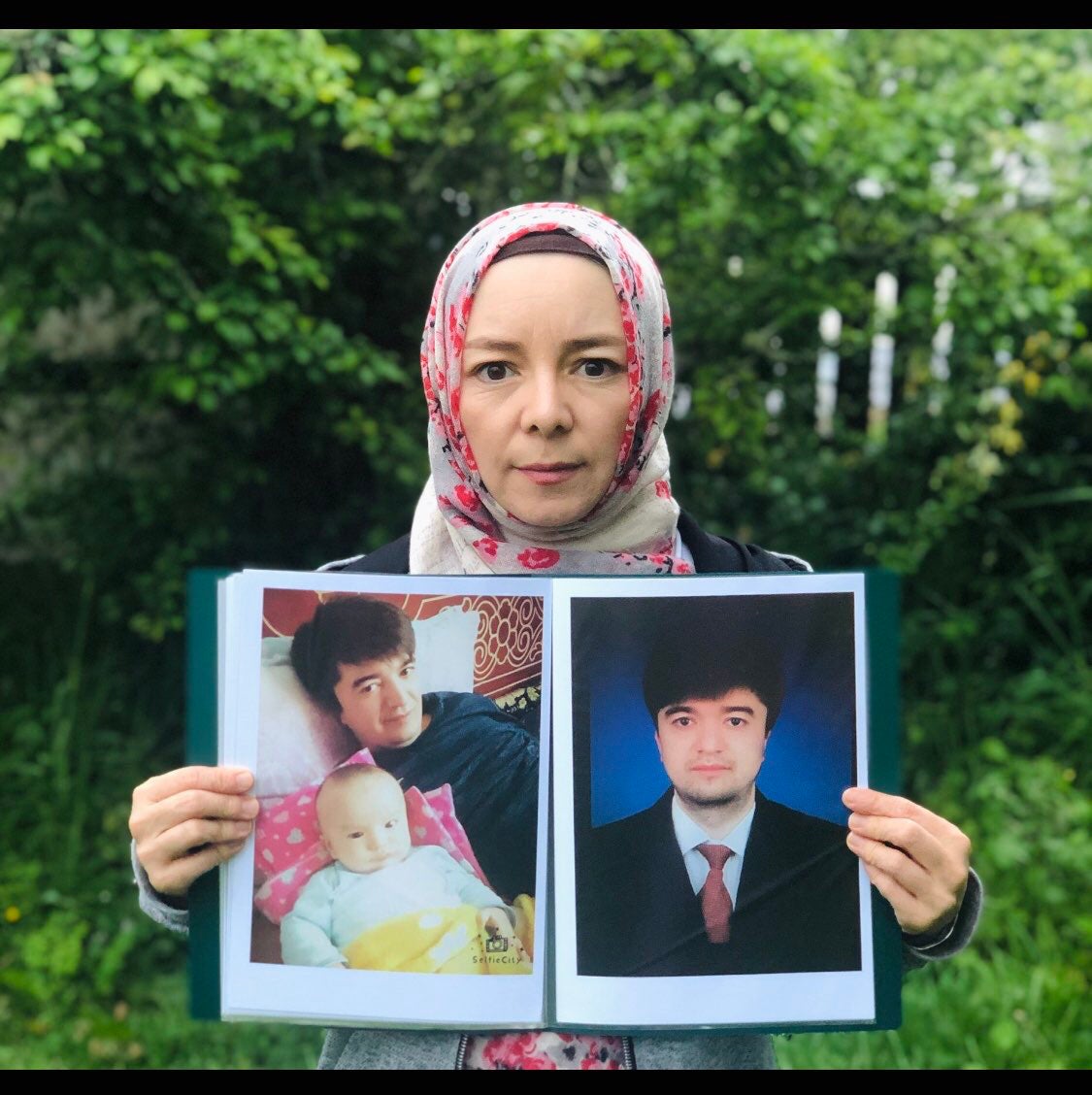
Your support helps us to tell the story
From reproductive rights to climate change to Big Tech, The Independent is on the ground when the story is developing. Whether it's investigating the financials of Elon Musk's pro-Trump PAC or producing our latest documentary, 'The A Word', which shines a light on the American women fighting for reproductive rights, we know how important it is to parse out the facts from the messaging.
At such a critical moment in US history, we need reporters on the ground. Your donation allows us to keep sending journalists to speak to both sides of the story.
The Independent is trusted by Americans across the entire political spectrum. And unlike many other quality news outlets, we choose not to lock Americans out of our reporting and analysis with paywalls. We believe quality journalism should be available to everyone, paid for by those who can afford it.
Your support makes all the difference.Cornell University has been accused of “denying the existence” of a Uyghur student who asked a US Member of Congress about genocide during a guest lecture, prompting a mass walkout by her Chinese classmates.
Fulbright scholar Rizwangul NurMuhammad, whose brother Mewlan has been detained in the Chinese province of Xinjiang since 2017, told The Independent she felt she was being “intimidated and humiliated” after speaking up about persecution of Uyghurs, and that the Ivy League university had failed to support her.
The walkout occurred during a seminar delivered by Rep Elissa Slotkin via video link to around 100 students from the Cornell Institute of Public Affairs (CIPA) earlier this month.
In a video of the incident seen by The Independent, Ms NurMuhammad speaks of her brother’s imprisonment and asks the Democratic Congresswoman about the difference between the US Government’s firm response to the Russian invasion of Ukraine compared to its muted reaction to the incarceration of more than one million Uyghurs in China, which has been declared a genocide by the State Department.
As Ms Slotkin begins to answer, around half of the students stand up and leave the lecture theatre.
Some of the Chinese students taunt and jeer Ms NurMuhammad on their way out, according to one person who was present.
“We have a lot of the Chinese students exiting the room, Congresswoman, just to let you know,” a university staff member can be heard saying.
Ms Slotkin responds: “I feel for you and I’m sorry that you’re going through that and I’m sorry that the students just felt the need to leave.”
The next day a Chinese student leader emailed the entire faculty of the Cornell Institute of Public Affairs to complain about the way they had been treated during the lecture.
The email, which was signed by 88 students, also cited an earlier incident during the lecture where a different student mentioned that “60 to 70 per cent” of the two-year Master of Public Administration graduate programme were international students from China.
The email stated the students had left because of the “extremely hostile” atmosphere, adding: “At that moment, we were not sitting in a classroom; we were crucified in a courtroom for crimes that we did not commit.”
They requested a formal response from the school management, “so that we know we made the right decision of choosing CIPA and Cornell”.
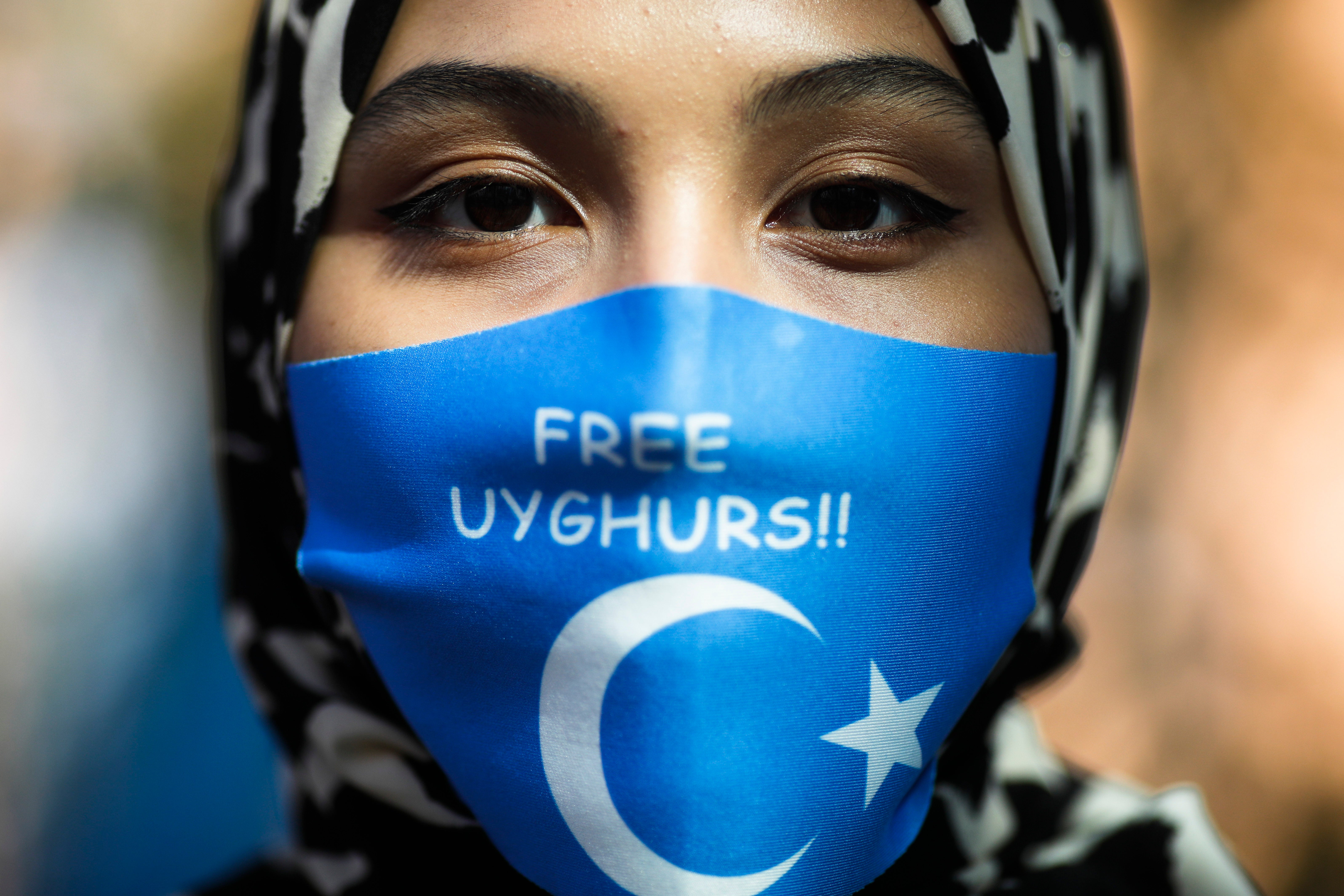
In response, Cornell Institute for Public Affairs Director Professor Matt Hall wrote a faculty-wide email, saying “the human rights abuses of the Uyghur people, are valuable points of discussion and critical to promoting open dialogue”.
“At the same time, we must also respect that walkouts are a legitimate form of protest and an appropriate expression of disapproval,” he wrote.
It called on students to be “respectful and civil toward our colleagues”, and not use social media to “cast them as a demographic group or in derogatory ways”.
Professor Hall’s email set-off a cascade of emails discussing the incident, with many students expressing support for Ms NurMuhammad.
I disclose information about my brother and my feelings about it, on Twitter to those who seek the truth, the reality.
— Rizwangul NurMuhammad (@Rizwangvl) March 12, 2022
Those who do not trust me or attempt to mock me should leave; you do not belong here unless you come with an open mind and willing to put yourself in my shoes.
What I am experiencing at @CornellBPP since last Thursday only gives me more courage to speak up.
— Rizwangul NurMuhammad (@Rizwangvl) March 12, 2022
I feel unjust, and unsupported for the truth that I am standing for, for my brother and for Uyghurs at large.
Ms NurMuhammad told The Independent the public humiliation she experienced during the walkout had been exacerbated by the “dehumanising” experience of being the subject of a school-wide discussion.
“The emails showed that they were trying to shift the focus of what happened. They have denied my existence, literally.
“My brother has been arbitrarily for five years, my people are suffering genocide at the hands of the Chinese Communist Party.
“When they walked out, the signal they gave me is that your personal suffering is not welcome to be shared in this space. They’re giving me this signal that you have to be silent.
“This stress and this worry has accumulated for too long.”
In response to a request for comment, Cornell University media relations department provided The Independent with a follow-up email sent to school staff and students from Professor Hall and the Dean of the Cornell Jeb E. Brooks School of Public Policy, Colleen Barry.
“Concerns have also been raised about the safety of individual students. Others have expressed worry that Chinese students are not welcome at Cornell,” the email said.
“All are welcome and should feel safe at Cornell.”
It also expressed concern about the “aggressive nature” of discussions about the incident in emails and on social media.
“These events have spurred divisive discourse and engaged us in serious conversation related to how best to speak up in the face of genocide and human rights atrocities against the Uyghur people. At the same time, they remind us how harmful it is when conversation devolves into derogatory anti-Asian expression.”
Ms NurMuhammad said staff had been in touch with her privately since the walkout, but that she was not satisfied with the university’s response and wanted a public apology.
“You’re talking about anti-Asian? What are you talking about? I’m Asian too. There is very little understanding of what I’m going through. I felt alone.”
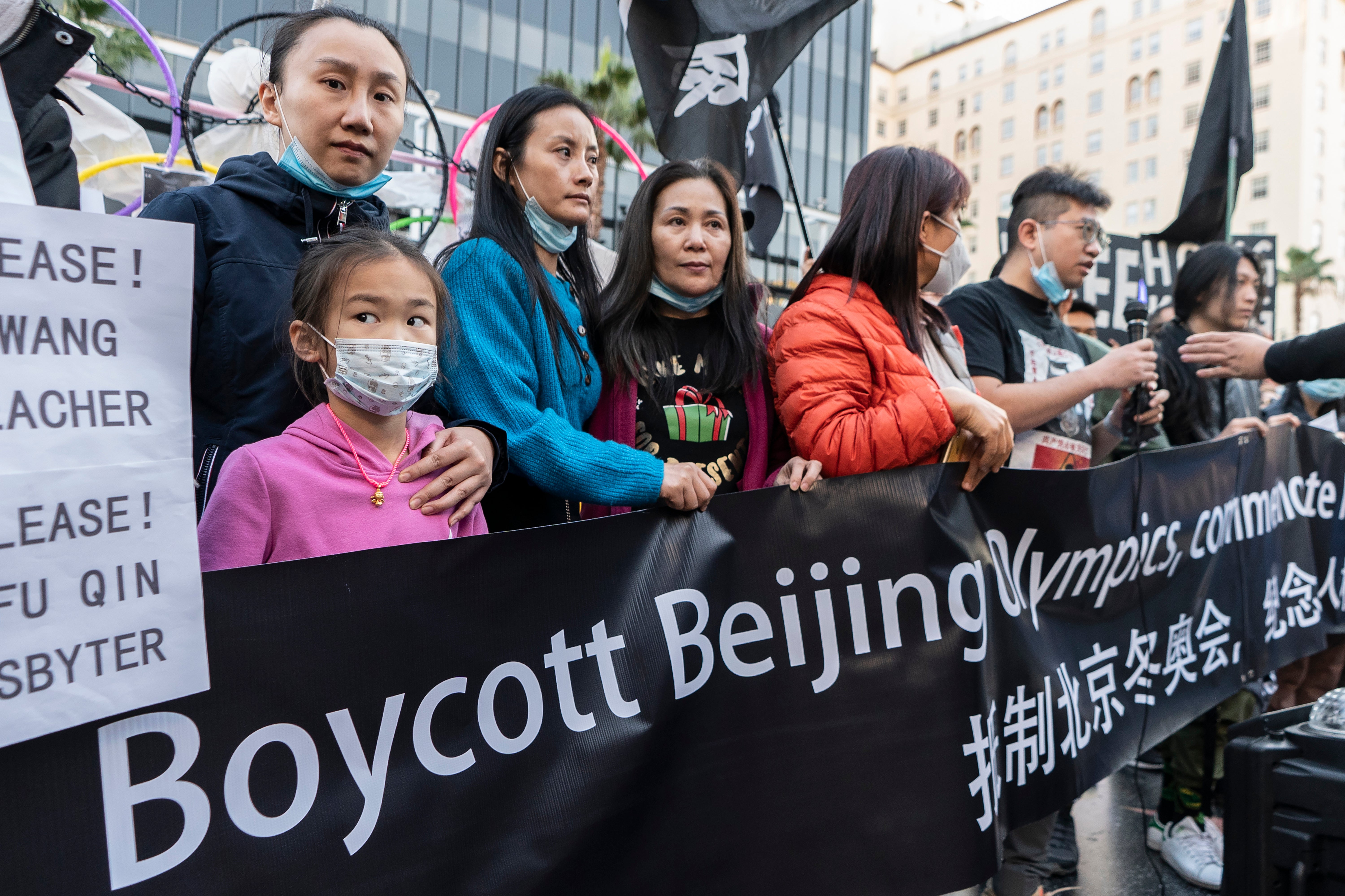
Guled Mire, a fellow student at the institute and Fulbright scholar, told The Independent the students’ actions were part of an alarming trend of Chinese Communist Party influence on free speech at American universities.
“What we’ve seen recently is a change in tactics in the way the CCP is extending control over influence in American universities through its student populations,” he said.
“There will be many who went through years of indoctrination of CCP propaganda and genocide denialism narratives, and that’s on full display. But there is also an unbelievable amount of pressure on these students, because we know what happens if they speak out.”
Mr Mire, a human rights advocate from New Zealand, called for Cornell University to be more vocal in its support for free speech.
“The university needs to take a strong stand that they will not allow any activities that are designed to intimidate or silence any discussion of human rights violations, particularly when it comes to genocide. If we can’t do it at a university, then where can we?”
Ms NurMuhammad, originally from Xinjian, moved to New Zealand in 2010 and gained citizenship there. She was awarded a Fulbright scholarship to study at Cornell and moved to the US in early 2021.
She has been a vocal critic of the Chinese Government since her brother disappeared following his arrest by plainclothes police officers in Xinjiang while he was on his lunch break in 2017.
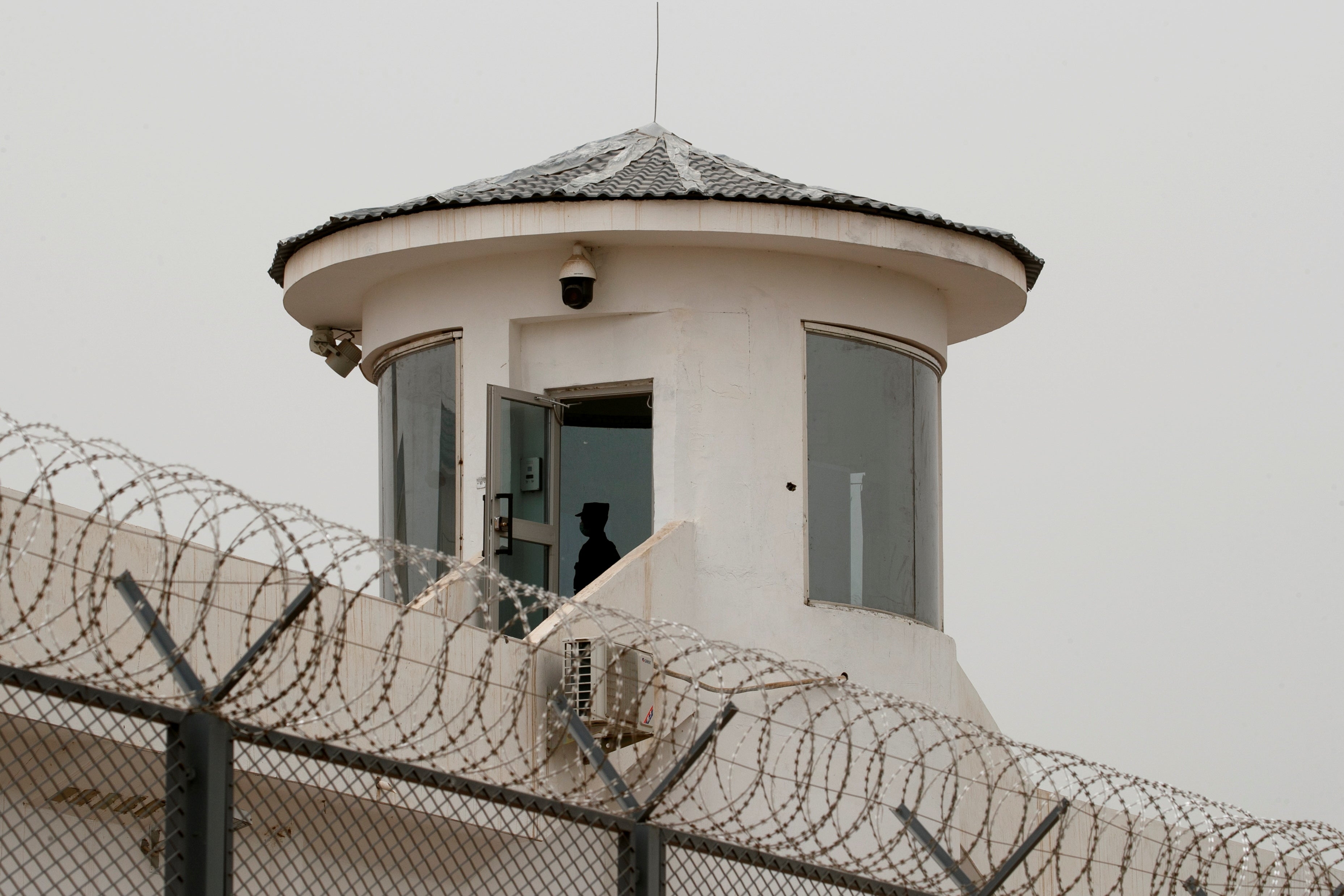
The United Nations and New Zealand Government have raised concerns about his detention, and sought answers about his wellbeing and whereabouts on the family’s behalf.
In response, a Chinese official in 2019 revealed Mr NurMuhammad had been sentenced to nine years’ imprisonment for “separatist activities” in August 2017, and was being held in a prison in the city of Shihezi.
More than one million Uyghurs are imprisoned in what the Chinese government refers to as “vocational training centres”, but are widely described by human rights organisations as concentration camps.
Ms NurMuhammad said since arriving to study at Cornell University, she had received intimidating phone calls and had felt unsafe at times.
And while university leaders had promoted the Black Lives Matter and Stop Asian Hate movements, it had never issued a formal statement on the issue of Uyghur persecution and genocide.
Last year, Propublica reported how a Purdue University student’s family in China were hounded by authorities after he wrote an essay about the Tiananmen Square massacre.
Purdue University President Mitch Daniels condemned the “atmosphere of intimidation” as “unacceptable and unwelcome” on the Indiana campus.
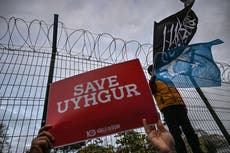
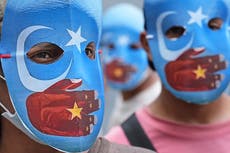
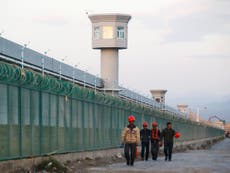
Join our commenting forum
Join thought-provoking conversations, follow other Independent readers and see their replies
Comments